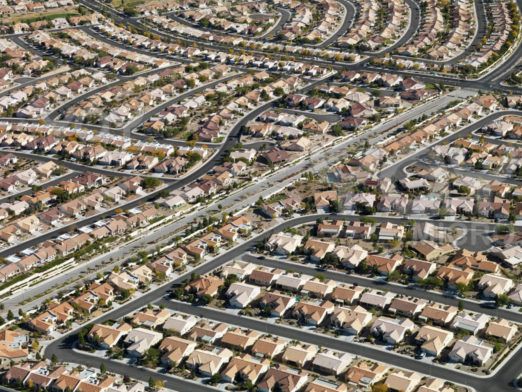L.A. housing crisis looms over March 7 ballot measure
by Chris Reed | February 13, 2017 4:15 pm
 Because of its extreme housing costs, California has emerged as the epicenter of American poverty, and Los Angeles is the epicenter[1] of California poverty.
Because of its extreme housing costs, California has emerged as the epicenter of American poverty, and Los Angeles is the epicenter[1] of California poverty.
This harsh state of affairs was on L.A. voters’ minds in November, when 65 percent approved Measure JJJ[2], an initiative launched by the L.A. County Federation of Labor that ended up winning a fair amount of business support. It creates an unusually strong affordable housing mandate that affects all projects with 10 or more units that need a zoning change, general plan amendment or height-district change to proceed.
Such projects are required to include construction of below-market-rate rental units — the term some prefer to the more vague “affordable housing.” With single-family housing, duplex and condo projects, developers could be forced to have up to 40 percent of the units be below-market-rate. With apartment projects, the mandate is up to 25 percent of units. Builders have the option of building the cheaper units elsewhere or paying into a city housing trust.
Measure JJJ’s de facto project labor agreement controlling construction pay caused considerable griping [3]in some business circles. But in a city where housing stock has lagged behind population growth for decades — driving the average rent to nearly $2,500 and forcing one-third of residents to pay more than half their income toward housing — its victory was celebrated as progress on a huge issue.
2-year moratorium on planning exceptions called catastrophic
Now, less than four months later, Los Angeles voters are again being asked to vote on a housing proposal — Measure S[4], the Neighborhood Integrity Initiative — that could negate what Measure JJJ hopes to accomplish.
Its critics say the measure would make the housing crisis in Los Angeles even worse. Defenders say it’s needed to respond to what they depict as shady City Hall approvals of zoning exceptions which allow for construction of large, high-impact projects that aren’t in neighbors’ interest.
If approved in a March 7 vote, it would ban for two years the granting of special project approvals to allow development contrary to what’s now permitted in Los Angeles’ 35 neighborhood planning documents.
No one disagrees that the documents are often badly out of date, reflecting the needs and concerns of the 1960s, 1970s and 1980s. The Measure S moratorium would end if all 35 documents were updated before the two-year ban came to an end.
But city officials say the process of revising the plans is cumbersome and will take years. From Mayor Eric Garcetti on down, they depict Measure S as a disaster for a city with an acute housing shortage. Garcetti has also warned it will make it far more difficult for the city to deal with its homeless crisis.
Local labor unions are also alarmed. “Measure S will block much of the affordable housing that voters just voted for when they approved Proposition JJJ,” Rusty Hicks, executive secretary-treasurer of the Los Angeles County Federation of Labor, said in a statement issued last week.
Zoning exception / donation link drives corruption argument
Garcetti and other city officials say suggestions of corruption in the way Los Angeles grants exceptions to its neighborhood plans are unfounded. But this argument is countered by the Yes on S campaign pointing to heavy campaign contributions[5] to officeholders from developers who benefited the most from the planning waivers.
The AIDS Healthcare Foundation[6] has been the most prominent face in the Yes on S campaign effort. Founded 30 years ago this month by Michael Weinstein, the foundation has long been active in health care issues, most recently with Proposition 60[7], the failed November state ballot measure that would have required adult film performers to wear condoms.
Weinstein’s prominence in the Yes on S campaign suggests the Hollywood-based foundation now hopes to make its mark on a broader range of issues.
- Los Angeles is the epicenter: http://www.scpr.org/news/2016/09/15/64657/census-los-angeles-still-has-more-people-in-povert/
- Measure JJJ: https://ballotpedia.org/Los_Angeles,_California,_Affordable_Housing_and_Labor_Standards_Initiative,_Measure_JJJ_(November_2016)
- griping : http://www.latimes.com/business/la-fi-jjj-election-20161109-story.html
- Measure S: https://ballotpedia.org/Los_Angeles,_California,_Changes_to_Laws_Governing_the_General_Plan_and_Development,_Measure_S_(March_2017)
- heavy campaign contributions: http://www.latimes.com/opinion/editorials/la-ed-developer-contributions-20170105-story.html
- AIDS Healthcare Foundation: https://en.wikipedia.org/wiki/AIDS_Healthcare_Foundation
- Proposition 60: https://ballotpedia.org/California_Proposition_60,_Condoms_in_Pornographic_Films_(2016)
Source URL: https://calwatchdog.com/2017/02/13/l-housing-crisis-looms-march-7-ballot-measure/